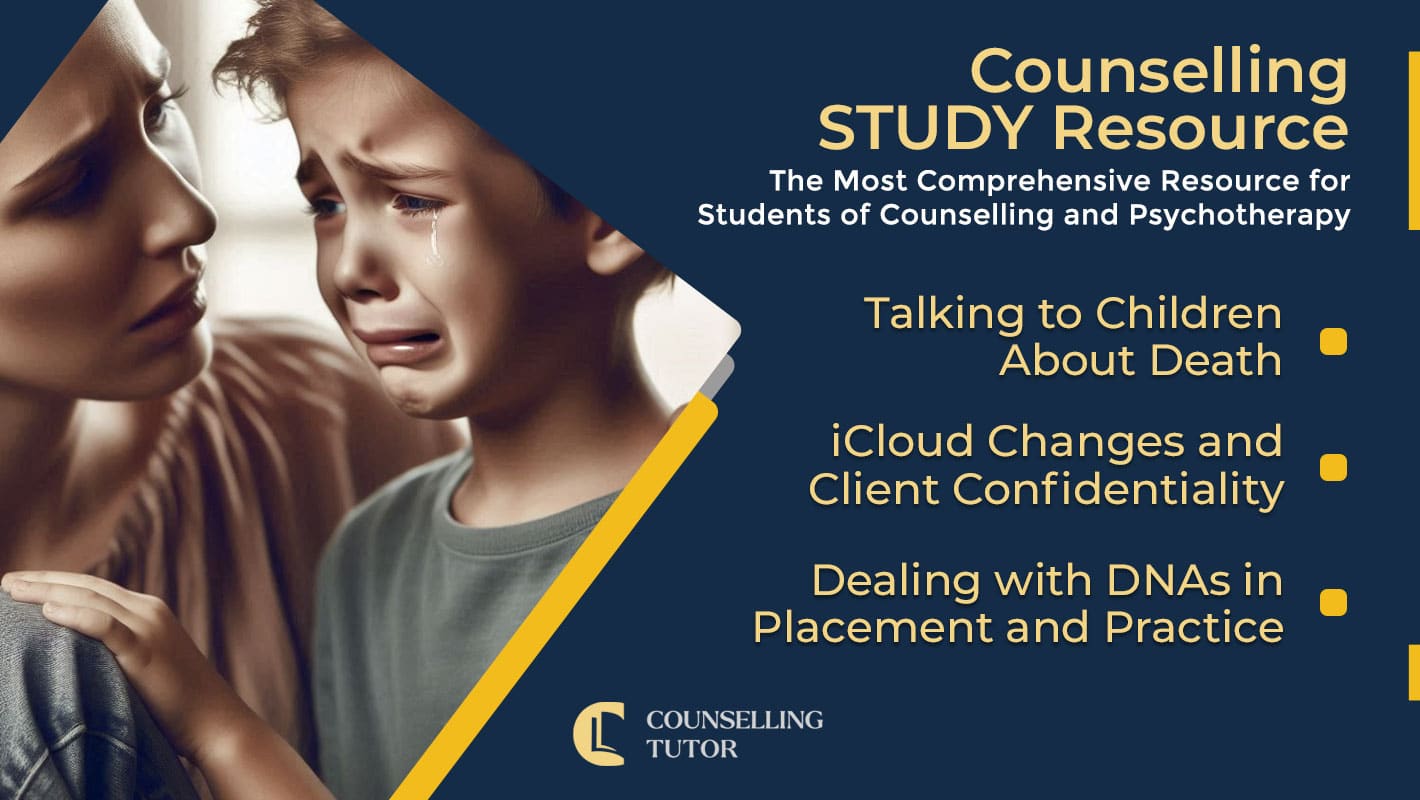See Counselling Skills Used in Real Sessions by Qualified Therapist
Real Sessions – Real Presentations – Real Skills
Gain the competence and confidence to use counselling techniques effectively!

In Episode 337 of the Counselling Tutor Podcast, your hosts Rory Lees-Oakes and Ken Kelly take us through this week’s three topics:
Talking to Children about Death
Talking to children about death is a delicate but vital topic. In this section, Rory and Ken offer guidance on how to approach this with compassion and clarity.
Key points discussed include:

Real Sessions – Real Presentations – Real Skills
Gain the competence and confidence to use counselling techniques effectively!
In this week’s Practice Matters, Rory speaks with Catherine Knibbs about the recent removal of Advanced Data Protection from Apple iCloud in the UK, and how this impacts therapists.
The key points of this conversation include:

On-demand access to a rich lecture library covering theory, skills, and professional development for counselling students—Mapped to the UK awarding body criteria
“The Student Library has been BRILLIANT, I can’t recommend it enough!
It has been a lifeline in helping me prepare for practice and my first clients. If you’re considering it, go-for-it, it’s absolutely worth it!”
Kelly – Graduated and now in practice.
Do Not Attends (DNAs) are a common part of placement and professional practice. In this section, Rory and Ken reflect on how to respond both practically and emotionally.
Main points include:
Talking to Children about Death

Get on-demand Certified CPD that is implementable in your practice
